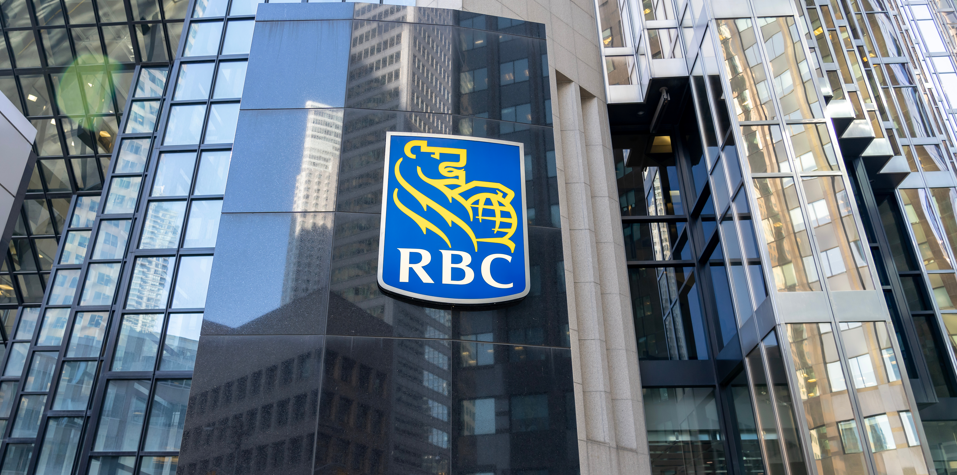
Royal Bank of Canada reports net income of C$3.9bn ($2.89bn) for the third quarter up 8% from the prior year. Results this quarter reflect higher provisions for credit losses, with a PCL on loans ratio of 29 bps. Results benefit from lower taxes reflecting a favourable shift in earnings mix.
RBC ends the quarter with employee numbers down by 1% from the prior quarter. It plans to reduce headcount by a further 1% to 2% in the final quarter.

Access deeper industry intelligence
Experience unmatched clarity with a single platform that combines unique data, AI, and human expertise.
Dave McKay, RBC President and CEO said: “Despite a complex operating environment, our Q3 results exemplify RBC’s ability to consistently deliver solid revenue and volume growth underpinned by prudent risk management. We remain focused on executing on our cost reduction strategy while leveraging our strong balance sheet and diversified business model to support our growth and bring long-term value to our clients, communities and shareholders.”
RBC Q3 2023 highlights
Net income rises by 5% y-o-y to C$2.13bn at the bank’s Personal and Commercial unit. This is primarily attributable to higher net interest income reflecting higher spreads. The benefit of higher interest rates more than offset changes in product mix. Canadian Banking posts average volume growth of 8% in deposits and 6% in loans. The quarter features strong double-digit loan growth in business lending (+14.2%) and credit cards (+13.4%). Higher service charges and foreign exchange revenue driven by increased client activity also contributes to the increase. These factors were partially offset by higher staff-related costs and ongoing technology investments.
RBC wealth management
Net income drops by 18% y-o-y to C$674m. RBC says that this mainly reflects continued investments in the operational infrastructure of City National. Higher provisions for credit losses are partly offset by the gain on the sale of the European asset servicing activities of RBC Investor Services and its associated Malaysian centre of excellence. The Wealth Management unit benefits from 17% growth in assets under management, including RBC Brewin Dolphin.
RBC Capital Markets net income rises by 57% y-o-y to C$938m. This is primarily driven by higher revenue in Corporate and Investment Banking. This includes the impact of loan underwriting markdowns in the prior year.

US Tariffs are shifting - will you react or anticipate?
Don’t let policy changes catch you off guard. Stay proactive with real-time data and expert analysis.
By GlobalDataRBC Q3 2023 less positive metrics
Total Provisions for credit losses increase by C$276m or 81% from a year ago. This primarily reflects higher provisions in Capital Markets and Wealth Management. The PCL on loans ratio of 29 bps increases by 12 basis points. Non-interest expenses rise by 23% y-o-y. RBC Brewin Dolphin, foreign exchange, SBC and transaction and integration costs relating to the planned acquisition of HSBC Canada add around 10% to expense growth. On an underlying basis, non-interest expenses rise by 13% driven by higher staff-related costs and professional fees.
City National net income is down by 71% y-o-y to $62m; deposits fall by 5% y-o-y.
Canadian banking cost-income ratio ticks up by 80 basis points to 40.5%. Wealth management cost-income ratio rises by 6.4 ppt to 79.2%.
RBC channel highlights
RBC ends the quarter with a branch network of 1,149 outlets, down from 1,173 a year ago. Active mobile banking users rise by 11% y-o-y to 6.64 million. Active digital users are up by 7% to 8.84 million. Meantime, mobile session rise by 21% to 150 million.







